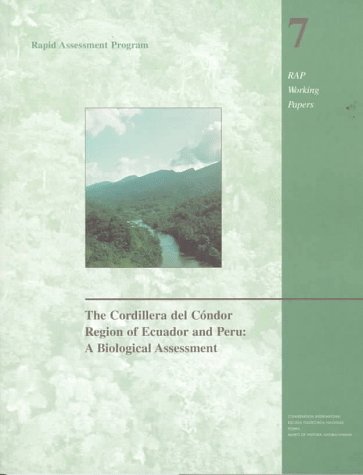Rapid assessment program working papers
1 primary work • 2 total works
Book 11
A Rapid Biological Assessment of the Northern Cordillera Vilcabamba, Peru
by Thomas S. Schulenberg
Published 1 April 1999
Under imminent threat from habitat destruction, the northern Cordillera Vilcabamba in the Andes is one of Peru's biologically richest areas. This report presents the results of two recent ecological surveys of this little-known region. Investigating both high and low elevation sites, the surveys discovered several species new to science. For instance, nearly a third of all the butterfly and moth species studied were previously unknown, and a large arboreal rodent species collected may even represent a new genus. This report also provides critical recommendations for effective conservation in the Vilcabamba, as well as a detailed anthropological assessment of resource use by local communities.
v. 7
The Cordillera del Condor Region of Ecuador and Peru
by Thomas S. Schulenberg
Published 21 June 1997
In 1993 and 1994, two Rapid Assessment Program teams conducted biological surveys in the Cordillera del Condor between Ecuador and Peru, one of the largest intact regions of Andean lower montane forest. This book presents the results of their surveys. The great topographical and geological complexity of this region, combined with a climate of year-round humidity, have resulted in very high plant species diversity. This diversity of habitats and species with restricted distributions makes the Condor an important refuge for many taxa.

